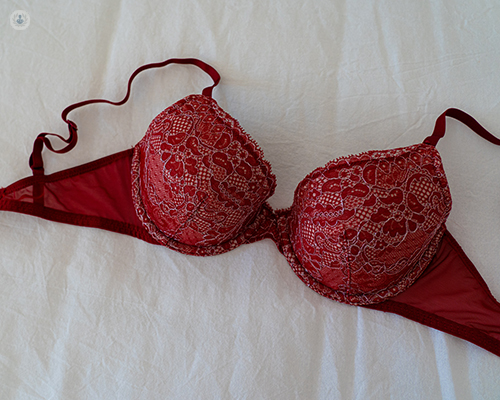Breast reduction surgery and weight loss: What’s the connection?
Written in association with:Some women find that their large breasts negatively impact on their daily lives, causing pain, discomfort and even impacting the type of clothes that they wear, as they may feel that some clothes do not “look right” on them, due to their breasts.
As a result, many choose to undergo breast reduction surgery. Renowned consultant oncoplastic breast surgeon Miss Sascha Dua explains the connection between weight loss and breast reduction surgery.

What is breast reduction surgery?
Breast reduction surgery involves the removal of breast tissue, thereby alleviating the weight of the breasts and occasionally, resulting in alterations to their shape as well. When there is a change in shape, this procedure is termed a mammoplasty, giving rise to the term "reduction mammoplasty." (For instance, when augmentations are performed, it is referred to as augmentation mammoplasty).
Why is it recommended to lose weight before breast reduction surgery, and not after?
Thanks to data provided by our anaesthetic colleagues in international studies, we have learned that patients with a BMI over thirty have higher risks. They may face anaesthetic risks such as DVT (deep vein thrombosis) clots in the leg or PE (pulmonary embolus) when a clot travels up to the lung, and can be fatal. Additionally, complications such as postoperative pneumonia and reflux tend to be more prevalent.
Throughout the years, I've observed that women possessing a small layer of fat beneath their breasts face an elevated risk of wound infection. Therefore, even if their BMI is 30, and I see that roll of fat, I may still ask them to lose a little more weight.
I often see women becoming interested in the gym after undergoing breast reduction surgery, even contemplating going to the gym for the first time, as their breasts had been a hindrance beforehand. However, if the patient loses fat from other parts of her body, she will also lose fat from her breasts, leading to an imbalance.
These are the principal reasons that I prefer patients to maintain a steady, lower BMI, alongside the tangible anaesthetic risks correlated with excess weight.
How can I lose weight for my breast reduction surgery in a healthy way?
Diet and exercise are key. Women wishing to undergo breast reduction surgery must adopt a sensible and gradual approach, although I've noted that many of my middle-aged patients tend to accumulate surplus weight around the midsection, which typically responds favourably to a low carbohydrate regimen, which I have concluded based on personal experience. Moreover, my patients speak highly of the Slimming World programme.
Regarding exercise, I acknowledge that some women find it challenging, however, cardio and resistance training lead to optimal results. The following exercises can be undertaken without causing discomfort to the breasts: stationary cycling, elliptical training, and utilising weights—either free weights or machines.
After weight loss, when is it the best time to consider breast reduction surgery?
As soon as your weight stabilises, and you feel assured that weight regain is unlikely, you are encouraged to proceed with breast reduction surgery.
If you would like some advice regarding weight loss and breast reduction and would like to book a consultation with Miss Dua, do not hesitate to do so by visiting her Top Doctors profile today.


